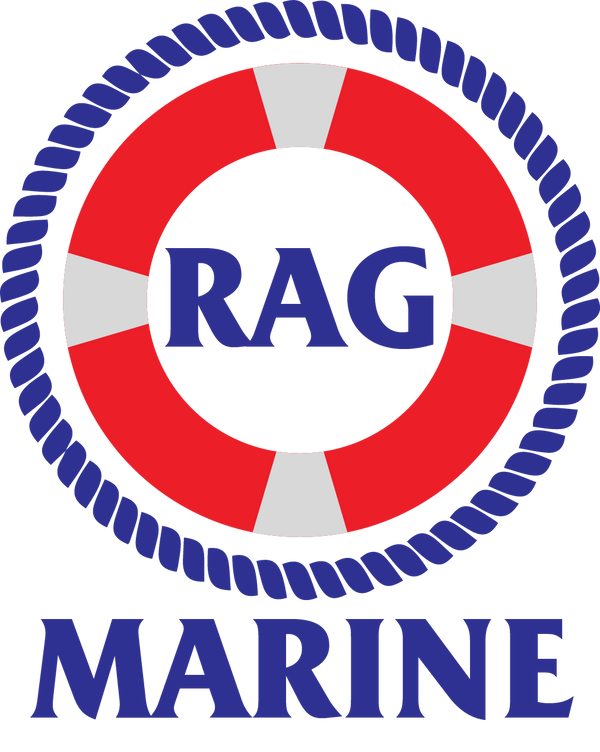Everything You Need to Know About Boat Propellers
Share
Propellers are an essential component in boats, allowing them to move through water. Without them, boats would not be able to travel any distance. In that sense, propellers are the powerhouse of a boat. This article will cover all the basics regarding boat propellers including different types, how they work, and the importance of these devices.
What is a Boat Propeller?
A boat propeller is a device attached to the back of a boat's hull. It is made up of two or more blades that spin independently from each other. The shape and size of the propeller will depend on the type of boat and its purpose. Its primary purpose is to provide propulsion, or forward movement, to the boat.
- Definition: A boat propeller is a device attached to the back of a boat's hull that is made up of two or more blades that spin independently from each other in order to propel the boat forward.
- Function: The primary purpose of a boat propeller is to provide forward motion to the boat.
Types of Boat Propellers
There are various types of boat propellers available, each suited to a different boat and purpose. Here are some of the main types of boat propellers:
- Fixed-Pitch Propellers: Fixed-pitch propellers are the most common type of propeller for recreational boats. These propellers are fixed to the hub and have a single blade angle, which cannot be adjusted. This makes them a good choice for boats that don't require a lot of maneuverability.
- Adjustable-Pitch Propellers: Adjustable-pitch propellers are the most versatile type of propeller. They can be adjusted in order to change the pitch of the blade and optimize the thrust of the boat at different speeds and in different conditions. This makes them an ideal choice for boats that require more maneuverability.
- Contra-Rotating Propellers: Contra-rotating propellers are large, two-blade propellers that spin in opposite directions. These types of propellers are most commonly used on larger boats, such as commercial vessels and fishing boats. They provide more thrust than a single-blade propeller and are more efficient at higher speeds.
How Boat Propellers Work?
Boat propellers are able to generate thrust by creating a slipstream of water behind the propeller. This slipstream is created as the blades spin, pushing water backward and creating a force that propels the boat forward. Several things happen when a propeller is in operation:
- Slipstream: As the propeller blades spin, they create a slipstream behind them. This slipstream is essentially a stream of fast-moving water which pushes against the boat, propelling it forward.
- Propeller Torque: The propeller's blades also create torque. This is when the propeller is trying to rotate the boat, which is why you often feel a tug on the wheel when the propeller is in operation.
- Propeller Thrust: In addition to creating a slipstream and torque, the propeller also creates thrust. This is the force that pushes the boat forward, and is generated by the pressure created by the spinning blades.
Factors to Consider When Choosing a Boat Propeller
When choosing a boat propeller, there are several factors to consider, including size and pitch, engine and operating conditions, and material and design.
- Size and Pitch: The size and pitch of the propeller will depend on the size and power of the engine. Generally speaking, larger and more powerful engines require larger and higher-pitched propellers in order to achieve optimal performance.
- Engine and Operating Conditions: The type of engine and the operating conditions will also help determine the type of propeller that is needed. Boats with higher horsepower engines typically require larger, higher-pitched propellers, while boats that will be operating in shallow water or high speeds may require adjustable-pitch propellers.
- Material and Design: The material and design of the propeller is also important. Propellers that are made from high-quality materials, such as stainless steel, will be more durable and better able to withstand the elements. Additionally, propellers with a streamlined design will be more efficient than propellers with a flat or blunt design.
Importance of Boat Propellers
Boat propellers are an important part of any boat, as they are the source of the boat's propulsion. Here are some of the reasons why boat propellers are so important:
- Safety: Boat propellers are important for safety, as they help to keep the boat on course. Without a propeller, the boat would struggle to remain steady and could drift off course.
- Fuel Efficiency: Boat propellers are also important for fuel efficiency. Propellers that are properly sized and pitched for the boat and engine can help to reduce drag, resulting in improved fuel efficiency.
- Performance: Finally, boat propellers are important for performance. The right propeller can give the boat the power and speed it needs to perform its best.
Boat propellers are an essential component in boats, enabling them to move through the water. Different types of propellers are suited to different boats and purposes, and it's important to choose the right one in order to ensure optimal performance. In addition to providing propulsion, propellers are also important for safety, fuel efficiency, and overall boat performance.
